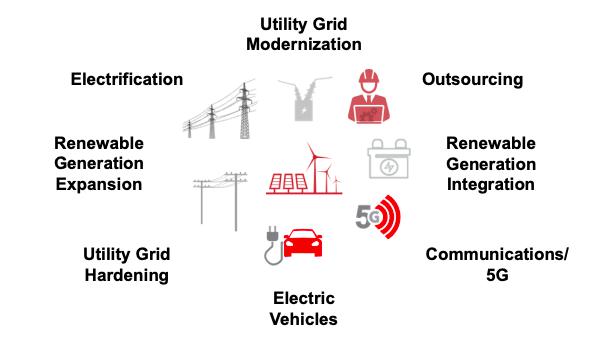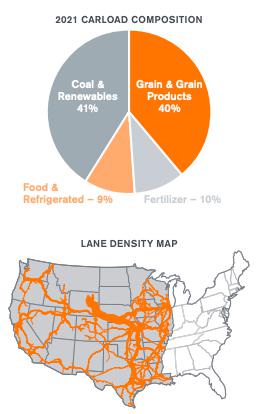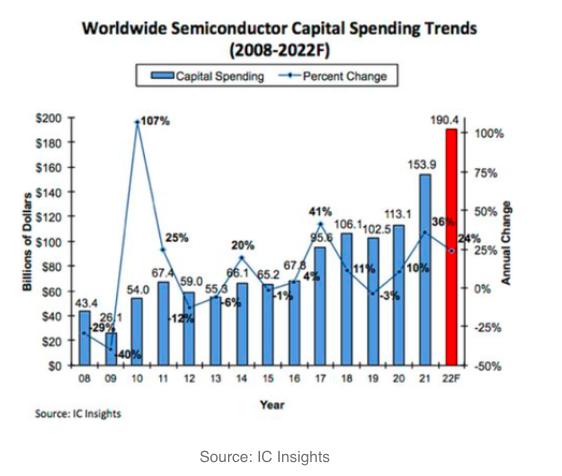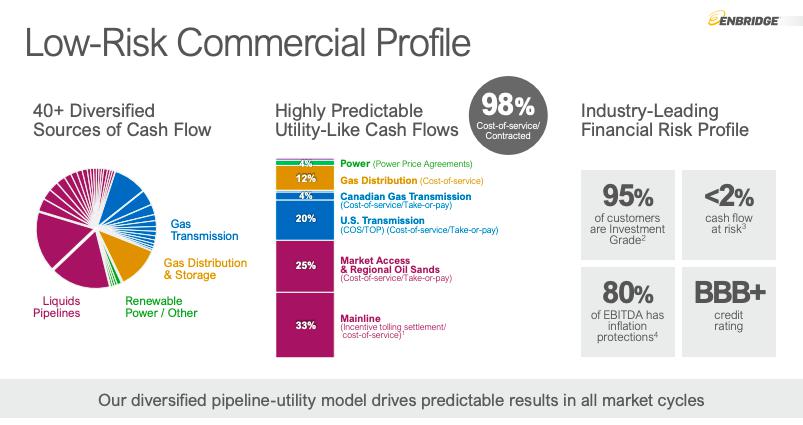FAANGs for the memories but it's time to QUAKE
Over the past few years investors that owned the much-coveted “FAANG” stocks would have been amongst the most popular people in the room. Fast forward to today and the NASDAQ is down -26% YTD; Facebook, now known as Meta Platforms (FB.NASDAQ), alone is down over -40% YTD. Growth stocks went on a tremendous rise to the top post-Covid however in the current environment, where fear is winning the arm wrestle against greed, those same growth stocks are being sold off heavily. So, where to allocate?
With rate hikes being implemented across the globe and even more expected over the remainder of the year, growth stocks are worth materially less than they were under lower interest rates. Their cash flows, which are further out in the future, are being discounted at a higher rate. On the other side, the stocks that already have strong cash flows and are paying steady dividends are holding up far better. We’re focusing on companies with steady cash flows, strong dividends and attractive moats in their respective industries here. These companies may seem boring but they are consistent performers with nearly unbreakable business models. We are looking for companies that provide products or services that people NEED rather than want. Central banks are raising rates in an effort to curb consumer spending. We want to position our portfolio to have a mix of companies that are critical to day-to-day lives and are irreplaceable.
The FAANG stocks have had their day in the sun. The stocks we are going to highlight here go by the mnemonic QUAKE. QUAKE is predominantly made up of infrastructure stocks which provide investors with exposure to cash flow generating assets, high earnings visibility and strong dividends. Critical infrastructure - the likes of railroads, utilities, ports and airports - typically have natural built in protection from inflation and fare well in a rising interest rate environment. They are often also seen as safe haven assets or bond proxies, this attribute could see a lot of investor capital enter the sector given the pessimistic outlook on markets today.
Quanta Services (PWR.NYSE)
Union Pacific (UNP.NYSE)
Amada Co. (6113.TYO)
KLA Corp (KLAC.NASDAQ)
Enbridge (ENB.TSE)
Quanta Services (PWR.NYSE)
Quanta was founded in 1997. The company is a leading specialised contracting services company, delivering comprehensive infrastructure solutions for the electric power, energy and communications industries. This includes design, installation, repair and maintenance. With operations throughout the United States, Canada, Latin America, Australia and select other international markets, Quanta has the manpower, resources and expertise to safely complete projects that are local, regional, national or international in scope. Quanta is well positioned to benefit from the energy transition toward a carbon neutral economy. They offer investors exposure to favourable long-term trends such as utility grid modernisation, system hardening, renewable generation expansion and integration, electric vehicles (EV), electrification and communications/5G.
On the back of energy transition tailwinds, we continue to see strong earnings and revenue growth for Quanta. Quanta will be a significant player in America's move towards renewable energy and the utility industry’s heavy spending programs on grid hardening. This exposure to renewable energy goes beyond just solar and wind, also including renewable diesel, hydrogen, and carbon sequestration. In addition, Quanta also participates in the rollout of 5G and in the building of necessary infrastructure for EV charging stations.
Quanta has a diverse but high quality portfolio of clients including American Electric Power, AT&T, Verizon and BP. We are seeing these companies grow their investment in capex and infrastructure. Quanta has one of the best reputations in the industry and has long term relationships with their clients, contributing to repeat work.

Union Pacific (UNP.NYSE)
Union Pacific Corporation, through subsidiary Union Pacific Railroad Company, operates in the railroad business in the United States. Union Pacific is the second-largest railroad in the United States after BNSF Railway. The company offers transportation services for grain and grain products, fertilizers, food and refrigerated products, as well as coal and petroleum products (amongst others).
UNP are responsible for transporting critical cargo needed to keep the lights on as well as ensure people aren’t hungry. A need, not a want. UNP holds an effective duopoly over railway shipping in the Western United States, this gives them pricing power in an inflationary environment. These railroad businesses may be mature but it doesn’t mean they aren’t also putting out spectacular numbers. In FY21, UNP’s ROE was sitting at 41.9%! For context, Amazon's (AMZN.NASDAQ) ROE in FY21 was 28.8%. The company still has room to grow through providing more channels for distribution to other geographies. There is also potential upside in UNP utilising their existing capacity more efficiently to maximise their operating leverage. The business ticks all the boxes for us: high barriers to entry, strong cash flows, and provides a critical service.

Amada Co. (6113.TYO)
Amada is a large Japanese manufacturer of metal processing equipment & machinery based in Kanagawa. They serve an array of markets, including construction, mining, aerospace and defence, automotive, agriculture, oil and gas, electronics/electrical components, industrial equipment, and the general consumer. The tailwind driving growth of the company is automation, which will increase efficiency and lower labour costs in turn, while development of the latest and innovative products will drive growth in the days ahead. Growth in end-use sectors such as manufacturing, aerospace and automotive is anticipated to drive the metal fabrication market over the next few years.
Amada are currently trading at an EV/EBITDA of 5.4x, they are also forecast to grow their EBITDA by +63% in FY22. Japanese companies have been notoriously overlooked by investors and are sitting on rock-solid balance sheets. Amada is sitting on a net cash position of ¥85m. As governance improves across the board in Japan we expect companies like these to get more attention. A longer-term tailwind for Amada is the urbanisation of India. India currently sits on a GDP per capita of less than $2000, their low GDP per capita means that most consumer spending goes towards food and other basic living necessities. Once GDP per capita crosses through $4000, spending on higher cost items that require metal - cars, fridges etc - will rise accordingly.
KLA Corp (KLAC.NASDAQ)
KLA is the leading supplier of process control equipment used in the fabrication of integrated circuits. Integrated circuits are small chips that perform functions in the digital world like memory storage, timers for automated processes, amplifiers etc. Before they get installed they need to be tested. KLA focusses on this testing. The process control systems, in which KLA specialises, are used to analyse product and process quality at critical junctures (mostly the back end when the whole IC Package has been assembled) of the manufacturing process. Small increases in yields, the % of the IC package that works, are very valuable to semiconductor makers since this means huge increases in profits to them.
There is a growing need to ensure the reliability of semiconductors due to their increasing complexity. The expansion of semiconductor demand has also continuously boosted the demand for testers. The challenges of semiconductor miniaturisation, advancing complexity, and power consumption reduction have continually raised the bar for improving test efficiency. This is all good news for one of the leading companies in this field.
Due to higher costs associated with larger wafer fabrication factories (fabs), manufacturers are mostly inclined toward outsourcing semiconductor assembly and testing services to third party providers. Leading fabless companies will continue to outsource everything, including testing, assembly, and packaging. This is a huge driver for testing companies like KLA.
In FY22 KLA is forecast to grow revenue and EBITDA by +36% and +44% respectively. As Capex from semiconductor companies continues to accelerate in an attempt to close the supply deficit, companies like KLA will continue to benefit.

Enbridge (ENB.TSE)
Enbridge owns and operates the largest footprint of crude oil and liquid hydrocarbon systems in North America. They are currently responsible for transporting about 25% of crude oil produced in North America and almost 20% of natural gas consumed in the US. ENB operates the world's longest crude oil and liquids transportation system, spanning 17,809 miles. Enbridge is the only energy infrastructure company that operates a massive pipeline network while also having its own gas utility company and large renewable energy portfolio.
The continuing conflict in Ukraine has put energy in the spotlight and, as much as society wants to move away from fossil fuels, we are finally starting to accept how critical oil and gas is (at least in the transition period). The pipelines that transport oil and gas are essential pieces of infrastructure, without them homes would struggle to keep the lights on. New England is a great example of how critical these pipelines truly are. In winter the area is largely covered by snow, making their solar panels somewhat redundant. Renewables aren't yet as reliable as people think and, without oil and gas, New England would struggle to power its cities.
Enbridge is a secure, high-yielding dividend icon with 27 years of consecutive increases, the current dividend yield being 6.2%. Enbridge is also investing in renewable power projects, primarily wind and hydrogen, which is positioning them with a strong portfolio of critical energy infrastructure to service the world's evolving energy needs.

DISCLAIMER
This report provides general information only and does not take into account the investment objectives, financial circumstances or needs of any person. To the maximum extent permitted by law, Delft Partners Pty Ltd, its directors and employees accept no liability for any loss or damage incurred as a result of any action taken or not taken on the basis of the information contained in the report or any omissions or errors within it. It is advisable that you obtain professional independent financial, legal and taxation advice before making any financial investment decision. Delft Partners Pty Ltd does not guarantee the repayment of capital, the payment of income, or the performance of its investments. Delft Partners operates as owner of API Capital Advisory Pty Ltd AFSL 329133.